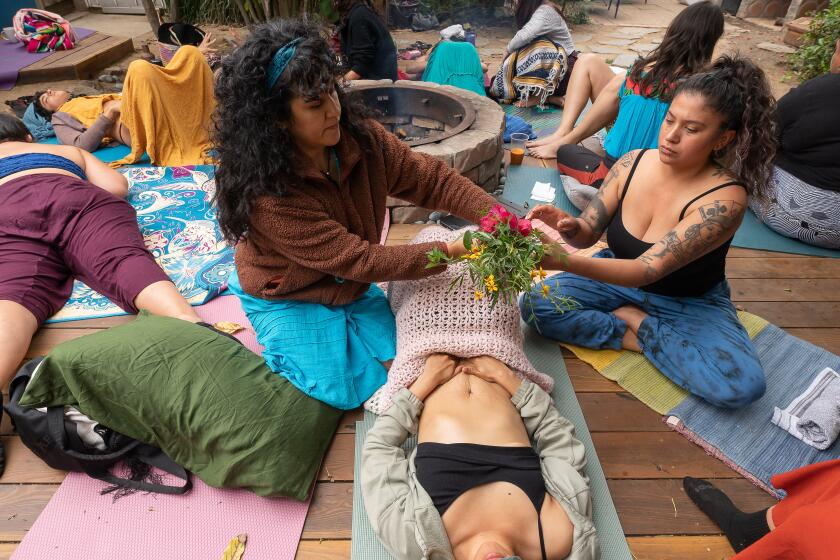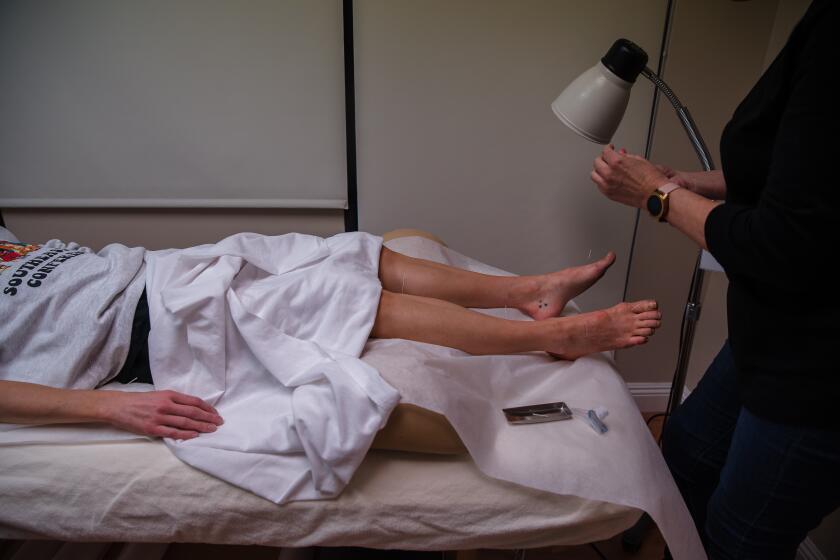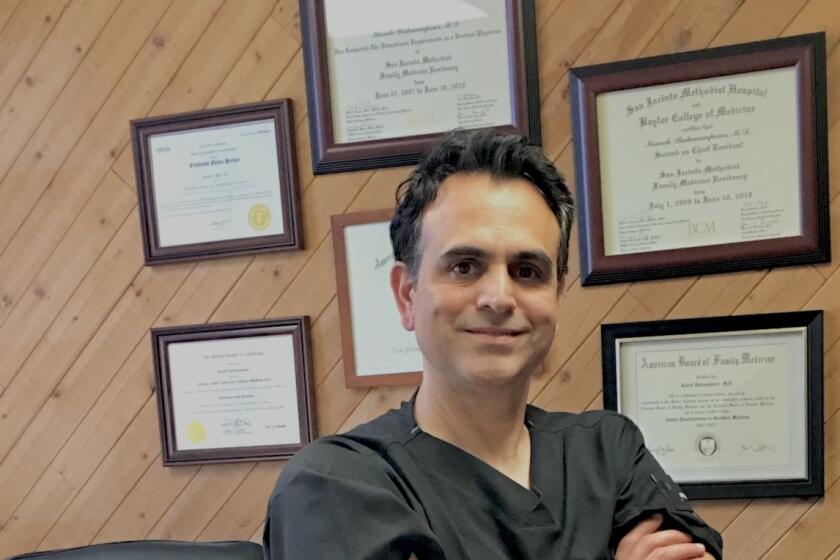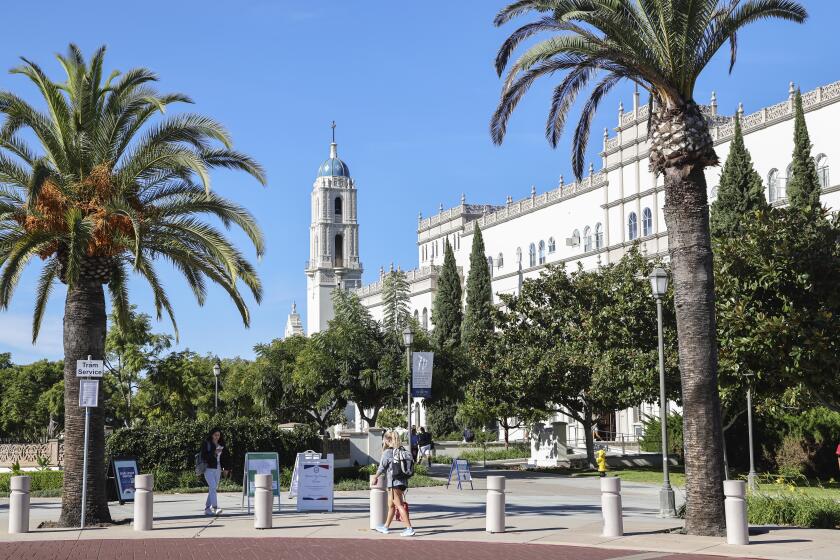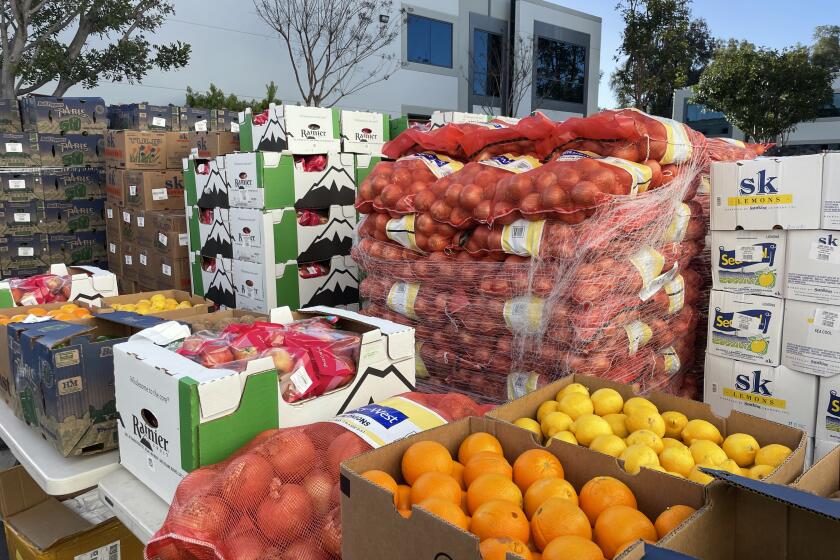Opinion: Social work students are required to work thousands of hours for free. We demand change.
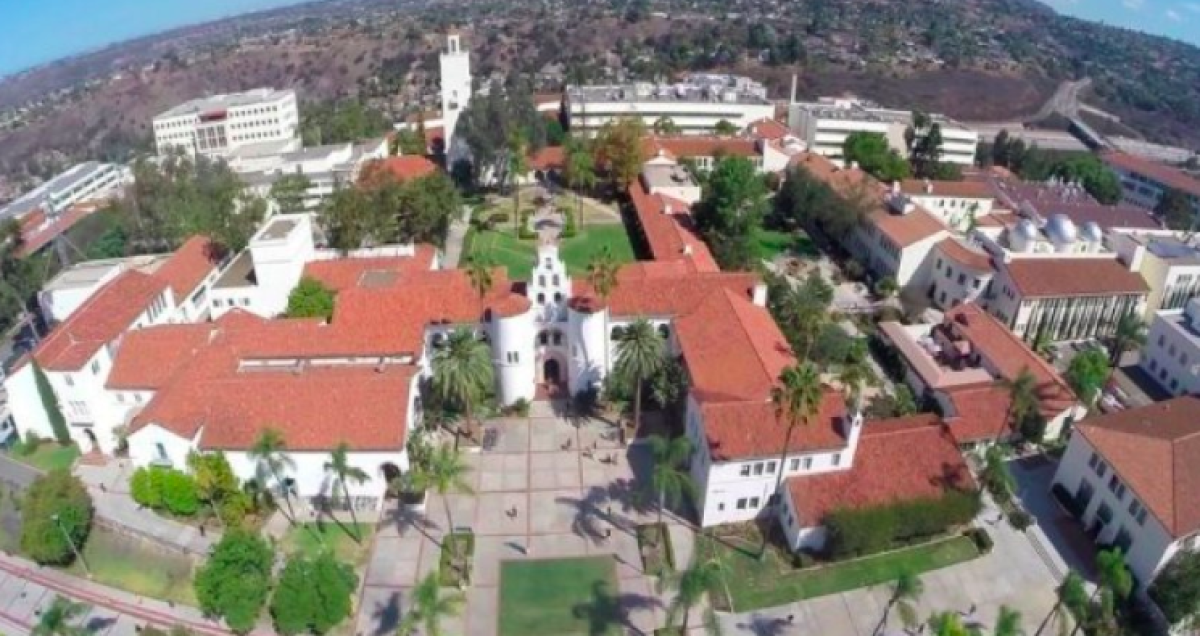
By working without pay, social work students subsidize dozens of local nonprofits, government agencies and health care organizations.
Metz is a graduate student in Social Work and Public Health at San Diego State University and the action and outreach coordinator for the P4P chapter SDSU, and lives in University City. Fox is a graduate student in social work at SDSU and the communications coordinator for the P4P chapter at SDSU, and lives in Ocean Beach. P4P is a nationwide movement of social work students calling for paid field placements.
Each year, hundreds of social work students enter the front lines of San Diego County’s mental health crisis, providing vital services for the area’s most vulnerable residents in schools, prisons, hospitals and outpatient facilities and on our streets. We provide direct therapy and case management for children, youth and adults with severe mental illnesses and substance-use disorders. We counsel family members with loved ones in hospice, connect homeless community members to resources, and do so much more. This army of unpaid workers fills the gaps in the social service sector at our own financial expense. This is not a sustainable or ethical approach to meeting the needs of our community.

Opinion resources
The U-T welcomes and encourages community dialogue on important public matters.
The Council of Social Work Education requires students to complete what it refers to as field education. To earn a degree, undergraduate students need to complete a minimum of 400 hours — and master’s students need to complete a minimum of 900 hours of field work. At many schools, the requirement is even higher. At San Diego State University, for example, students must complete 480 and 1,050 hours, respectively. This field work is predominantly uncompensated, and essentially amounts to an “unpaid internship.”
Economists have a saying that there is no such thing as a free lunch. Similarly, there is no such thing as an unpaid field placement. “Unpaid” field placements are funded by our student loans and savings accounts. By providing over 1,000 hours of free labor, social work students are asked to make a $16,000 donation to the agencies we work for, plunging ourselves and our families into debt. If we were paid at the California minimum wage — $15 an hour — then a social work master’s student who completes 1,050 hours of field work would earn $15,750. Of course, we believe that our time and skills are worth much more than $15 an hour.
This wage theft is allowed simply because we are students and this work is labeled “an educational experience.” The label “student” obscures the reality of the typical social work student. Many of us come from the same communities we aim to serve, have children and families to support, and have years, or even decades, of valuable work experience. But because we choose to continue our education, we lose the basic right to be compensated for our labor.
By working without pay, social work students subsidize dozens of local nonprofits, government agencies and health care organizations. It is absurd to rely on students to foot the cost of budget shortfalls, particularly at a time when costs of living and housing are rising exponentially in one of the most expensive regions of the country.
According to the Steinberg Institute, only one-third of Californians are receiving the mental health care they need due to the lack of providers — and this shortage is projected to increase. A recent article in The Washington Post noted that high turnover of social workers is leading to a massive workforce shortage nationwide. It is no wonder that we are facing a behavioral health workforce shortage. The financial and psychological burden of working in understaffed, under-resourced and stressful environments without pay for months on end needs to be taken seriously as playing a role in this crisis.
We propose the following immediate actions to ensure that social work students are paid fairly for our work:
San Diego County should demonstrate leadership and commit to paying its social work interns a living wage.
San Diego County should require that all social work student interns working for subcontractors of the county be paid a living wage.
Agencies hosting social work students should critically assess their values and budgets, and determine whether relying on unpaid labor to subsidize their budgets is in line with their ethical standards. Agencies that can afford to pay should do so immediately.
The Biden administration should reverse a Trump-era rule that made it easier to classify workers as unpaid interns and close the loophole exempting nonprofit and government agencies from the Fair Labor Standards Act.
Social work programs should prioritize placing students in paid field placements, be transparent with students about whether and how much each placement pays, and set a high bar for placements that insist on not paying their interns. If agencies demonstrate that they are not compliant with Department of Labor regulations, schools should hold them accountable by suspending placements at that site.
The social work code of ethics calls for the advancement of social, racial and economic justice. Just like anyone else, social work students deserve to be valued. We deserve dignity and we deserve to be compensated.
This essay is in the print edition of The San Diego Union-Tribune on March 22, 2022, with the headline, Social work students need some help of their own
Get Weekend Opinion on Sundays and Reader Opinion on Mondays
Editorials, commentary and more delivered Sunday morning, and Reader Reaction on Mondays.
You may occasionally receive promotional content from the San Diego Union-Tribune.
